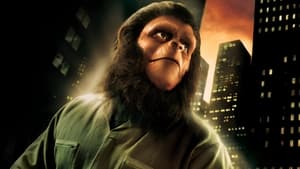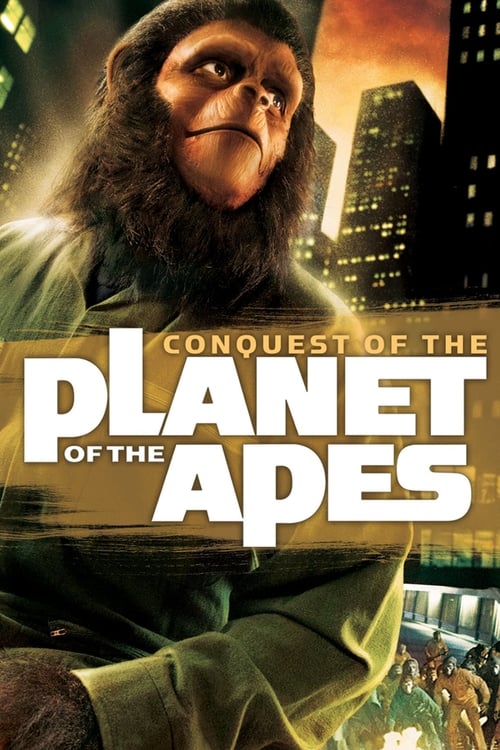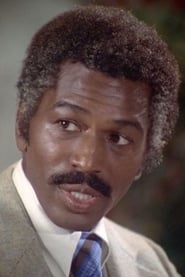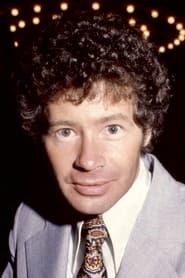Cast
View AllRoddy McDowall
as Caesar
Don Murray
as Breck
Ricardo Montalban
as Armando
Hari Rhodes
as MacDonald
Severn Darden
as Kolp
Lou Wagner
as Busboy
Natalie Trundy
as Lisa
John Randolph
as Commission Chairman
Asa Maynor
as Mrs. Riley
Joyce Haber
as Zelda
H.M. Wynant
as Hoskyns
David Chow
as Aldo
Buck Kartalian
as Frank - Gorilla
John Dennis
as Policeman
Paul Comi
as 2nd Policeman
Crew
Director
- J. Lee Thompson
Producer
- Arthur P. Jacobs
Reviews
Al Jolson
**A few guys in rubber masks throwing some chairs around does not make a global conquest.**
I understand the budgetary restraints but come on. Twenty guys running amok with a chair leg is way to weak.
The poster exclaims _a spectacle like never before witnessed_ and what do we get? A small crowd of men in boiler suits wielding a cabbage at the authorities.
_I swear one of the Apes even threw a comb at a policeman._
A shame the budget wasn't there as the cheapness really restricted the promise.
Jul 28, 2017
r96sk
<em>'Conquest of the Planet of the Apes'</em> is the weakest of the first four films. It's watchable, still.
It shares similarities to <em>'Rise of the Planet of the Apes'</em> from the rebooted 2010s series, though it isn't quite as entertaining or convincing. Serviceable it is, however. Roddy McDowall stays in the franchise, but as a different character in Caesar. McDowall is the clear standout from the cast, the rest of whom are solid if forgettable.
I found the real world parallels a bit too forced in this one, while the long speeches near the end feel over the top. For the early 1970s, though, the look of the film remains pleasant - I do like watching these films, after all this is - in my opinion - still a passable flick; if indeed the weakest so far.
Feb 27, 2022
CinemaSerf
Last year, "Cornelius" and "Zira" were back in the 1970s. Now we scoot forward a few millennia and find that the Simian flu has robbed humankind of it's pets. Always in need of something to feed, comb and to take for walks, we have decided to domesticate chimps. The thing is, though, that this plan has started to spiral out of control. The animals have had just about enough of being the substitutes for our erstwhile four legged friends and are beginning to smell freedom. The governor "Brock" (Don Murray) is determined to beat down any rebellion, but hasn't factored in the appearance of "Caesar" (Roddy McDowall playing his own son!) who is the one who could make all the difference - he can talk, after all. Pursued, tortured and enslaved he must escape and rally his kind in their pursuit of freedom. This is quite a decent story because we have plenty of action and we have a baddie to focus on. For that, Murray is quite efficient at garnering our loathing as a typically megalomaniac politician. Ricardo Montalban carries through his role as circus owner "Armando" but frankly adds little to the theme that bubbles along nicely towards a denouement that shows that these former slaves are quite adept with a blow torch - who knew? It's all familiar now, and that allows us to just get on with this latest episode in a perfectly watchable season of movies.
Jun 8, 2023
Wuchak
**_Oppressed apes seek freedom in a Schutzstaffel-patterned police state_**
Twenty years after the deaths of Cornelius & Zira, their child (Roddy McDowall) has been raised by a circus owner in secret (Ricardo Montalbán). Meanwhile society has devolved into Nazi-like authoritarianism in which chimpanzees, orangutangs and gorillas are viewed as pets at best and, worse, trained servants. Don Murray, Hari Rhodes and Severn Darden are featured in key roles.
“Conquest of the Planet of the Apes” (1972) is the fourth entry in the original franchise. It’s the darkest one and is pictorially unique with the focus on despotism and modern urban structures. Don’t expect the desert wilderness or forests of the first two movies.
Regrettably, 20th Century Fox was struggling at the time and so each film in the series had a significantly lower budget than the previous. No matter how you slice it, this can be ‘felt’ while watching “Conquest,” even though I appreciate the distinctive visuals.
Yet, for me, it’s the story and characters that count and they’re just not very captivating. The next movie, “Battle for the Planet of the Apes” (the final one of the original five), had the lowest budget and, therefore, the weakest sets, but it made up for it with interesting characters and a fairly compelling story, despite the cheesy comic book tone.
This has its points of interest, for sure, but I find it the least of the original series.
It runs 1 hour, 28 minutes, and was shot at Century City, Los Angeles, with some exteriors done at the Social Sciences buildings at the University of California in Irvine, which is 51 miles to the southeast.
GRADE: C
Mar 22, 2025
Thematic Analysis
This high-octane Action/Science Fiction film balances spectacular sequences with character-driven moments. Unlike many films in the genre, Conquest of the Planet of the Apes distinguishes itself through a unique visual style and creative action choreography.
Director J. Lee Thompson brings their distinctive visual style to this film, continuing their exploration of themes seen in their previous works while adding new elements. Their approach to pacing and visual storytelling creates a viewing experience that rewards close attention.
Released in 1972, the film exists within a cultural context that now offers viewers historical perspective on the social issues of that era. Its reception demonstrates the diverse reactions to its artistic choices and its place in cinema history.
Did You Know?
- The production of Conquest of the Planet of the Apes took approximately 14 months from pre-production to final cut.
- With a budget of $1.7 million, the film proved to be a financial success, earning back its investment and more.
- The final cut of the film runs for 88 minutes, though the director's initial assembly was reportedly 147 minutes long.
- The screenplay went through 10 major revisions before the final shooting script was approved.
- The film contains approximately 2414 individual shots.
- Several scenes were filmed in multiple locations to capture the perfect setting.
Historical Context
- In 1972, when this film was released:
- Disco music dominated popular culture.
- Environmental awareness was growing as a social concern.
- The film industry was dominated by major studios, with independent cinema still in its early development.
How This Film Stands Out
While Conquest of the Planet of the Apes shares thematic elements with other films in its genre, it distinguishes itself through its unique approach to storytelling, visual style, and character development.
Unlike The Fifth Element, which takes a more conventional approach to its subject matter, Conquest of the Planet of the Apes offers a fresh perspective through its innovative visual language and narrative structure.
While films like Mortal Engines and Routasydän explore similar territory, Conquest of the Planet of the Apes stands apart through its deeper exploration of its central themes and more complex characterization.
This film's unique contribution to cinema lies in its thoughtful balance of entertainment value and thematic depth, making it a valuable addition to its genre.
Details
- Release Date: June 29, 1972
- Runtime: 1h 28m
- Budget: $1,700,000
- Revenue: $9,700,000
Where to Watch




















